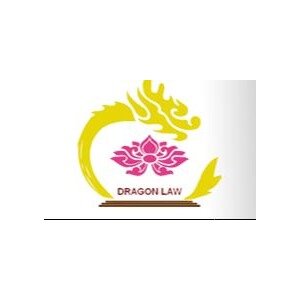Best Divorce & Separation Lawyers in Vietnam
Share your needs with us, get contacted by law firms.
Free. Takes 2 min.
Free Guide to Hiring a Family Lawyer
Or refine your search by selecting a city:
List of the best lawyers in Vietnam
About Divorce & Separation Law in Vietnam
Divorce and separation in Vietnam are governed by the Law on Marriage and Family. This law outlines the legal procedures for both parties wishing to dissolve their marriage. In Vietnam, divorce can be initiated by mutual consent or unilaterally if one party does not agree. The process involves addressing issues such as child custody, division of property, and spousal support. The Vietnamese legal system aims to ensure fairness and protect the rights and interests of all parties involved, including children.
Why You May Need a Lawyer
Legal representation can be crucial in divorce and separation cases due to various complexities in the process. You may need a lawyer if you are dealing with:
- Disputes over child custody or support
- Complex asset division, especially involving property or businesses
- Domestic violence or abuse situations requiring immediate legal protection
- The need to ensure fairness and equitable treatment under the law
- Language barriers, as legal proceedings are conducted in Vietnamese
Local Laws Overview
Key aspects of Vietnamese divorce and separation laws include:
- Grounds for Divorce: Divorce can be based on mutual consent or due to irreconcilable differences. Unilateral divorce requires substantiation.
- Property Division: Marital property is typically divided equally, but the court may adjust percentages based on contributions and each party's needs.
- Child Custody: The child's best interests are paramount, and custody arrangements aim to benefit the child.
- Residence Regulations: The court may decide a child's domicile if custody is contested.
- Spousal Support: Spousal support may be granted based on need, standard of living during marriage, and ability to pay.
Frequently Asked Questions
Can foreigners get divorced in Vietnam?
Yes, foreigners can get divorced in Vietnam if one or both parties reside in Vietnam. The process involves complying with Vietnamese laws, and may require translation of documents.
How long does the divorce process take in Vietnam?
The process can take several months, depending on the cooperation of both parties and complexity of the case. A contested divorce may take longer than one by mutual consent.
Is mediation required during a divorce?
Mediation is encouraged as a first step in Vietnam to resolve issues amicably before resorting to court proceedings.
Are prenuptial agreements recognized in Vietnam?
Yes, prenuptial agreements are recognized, but they must comply with Vietnamese law and be notarized to be enforceable.
Can I appeal a divorce judgment?
Yes, either party can appeal a court's judgment on divorce within a prescribed period if they believe there's substantial injustice or procedural error.
What happens if my spouse does not agree to a divorce?
You can file for unilateral divorce if your spouse refuses to consent. The court will review the grounds for your application and make a determination.
How is child support calculated?
Child support is calculated based on the needs of the child and the financial capacity of the non-custodial parent. The court considers both personal income and standard of living.
What documents are needed for filing a divorce?
Key documents include the marriage certificate, identification papers, proof of residency, and any agreements concerning property or child custody.
How are assets divided in a Vietnamese divorce?
Assets are divided equitably. The court considers the couple’s financial contributions and future employment prospects, prioritizing the welfare of any involved children.
What roles do parents have after a divorce?
Both parents retain roles in ensuring their child’s welfare, though legal custody indicates where the child primarily resides. Both parents may still make decisions about the child’s life.
Additional Resources
Consider contacting the following organizations for more information or assistance:
- The Vietnamese Ministry of Justice
- Local Legal Aid Centers
- Vietnam Bar Federation
- Embassies or Consulates for foreign nationals
- Non-governmental organizations specializing in family law
Next Steps
If you need legal assistance in divorce and separation, consider the following steps:
- Consult with a licensed attorney experienced in Vietnamese family law.
- Gather relevant documents, such as marriage certificates and financial records.
- Explore mediation to resolve issues cooperatively before trial.
- Stay informed about your rights and responsibilities under Vietnamese law.
- Seek support from professionals and support groups to navigate emotional challenges.
Legal complexities require careful navigation, so securing knowledgeable counsel can be crucial for protection and compliance during the divorce process in Vietnam.
Lawzana helps you find the best lawyers and law firms in Vietnam through a curated and pre-screened list of qualified legal professionals. Our platform offers rankings and detailed profiles of attorneys and law firms, allowing you to compare based on practice areas, including Divorce & Separation, experience, and client feedback.
Each profile includes a description of the firm's areas of practice, client reviews, team members and partners, year of establishment, spoken languages, office locations, contact information, social media presence, and any published articles or resources. Most firms on our platform speak English and are experienced in both local and international legal matters.
Get a quote from top-rated law firms in Vietnam — quickly, securely, and without unnecessary hassle.
Disclaimer:
The information provided on this page is for general informational purposes only and does not constitute legal advice. While we strive to ensure the accuracy and relevance of the content, legal information may change over time, and interpretations of the law can vary. You should always consult with a qualified legal professional for advice specific to your situation.
We disclaim all liability for actions taken or not taken based on the content of this page. If you believe any information is incorrect or outdated, please contact us, and we will review and update it where appropriate.
Browse divorce & separation law firms by city in Vietnam
Refine your search by selecting a city.
















